Reading
Intent
At The Beeches Primary School, we aim to create fluent, confident readers, with a deep understanding of the texts they read. Our curriculum introduces children to a wide variety of high-quality, challenging, age-appropriate texts, whilst skilfully embedding a series of reading strategies to give children the confidence to tackle new texts independently. We hope all children leave our school with a life-long love of reading, which is encouraged and modelled by all staff.
Implementation
Early Reading is taught using the ‘Little Wandles’ phonics scheme. In Foundation Stage and Year 1, children learn and practise decoding and segmenting skills through twice daily phonics sessions. These skills are further embedded during small group reading sessions, where children begin to develop basic reading skills such as word reading, prosody and comprehension. Children in Year 2 continue with twice daily phonics sessions and three reading sessions a week until the end of the Autumn term. The children in Year 2 then receive a mixture of whole class sessions and small group guided reading sessions.
Additional daily keep up intervention is given to children who need further support. We use two separate Little Wandle phonics schemes for children beyond the age of seven still needing phonics teaching: Rapid catch up for new arrivals and a specially designed SEND scheme.
Beyond Reception, reading sessions become more reading-skill focused. Lessons also provide children with the opportunity to develop fluency in order to become confident readers, whilst encouraging book talk and a deeper understanding of the texts they read. By KS2, children begin to become more independent in their reading sessions, and lessons follow a sequence each week. Children complete: a full pre-read, complete an oracy activity, take part in a modelled comprehension session, practise answering reading comprehension questions independently and complete activities to further deepen their understanding (these can be individual, collaborative, written or verbal).
As part of this sequence, our children are taught how to use breakdown strategies when they come across a new word; to ask questions as they read, to make predictions; to find VIP words and phrases to help them answer questions; to summarise; to visualise images in their heads; and to use their background knowledge to help understand a text. We believe this core set of inference skills are vital in creating confident and skilled readers. Children are exposed to a regular diet of deduction, inference, vocabulary and literal comprehension questions and are taught to recognise them and how to tackle them effectively.
At The Beeches Primary School, we have created a love to read culture and part of that culture to ensure that all children have engaging and exciting books to read at home. In Foundation stage and Year 1, children take home two books: one which is matched to the sound they are currently learning and one more challenging book-banded book to enjoy and further develop their comprehension skills. From Year 2 and throughout KS2, Accelerated Reader is used by all core children where they take comprehension quizzes to ensure rapid progress through reading levels. The Accelerated Reader book stock is regularly replenished with children’s book requests and recommendations. In addition, each class has dedicated time to read as a class (Everybody Reading in Class – known to our children as ERIC time).
As part of our mission to encourage children to read for pleasure, all children hear a story read aloud to them every day as part of our Drop Everything And Read sessions (D.E.A.R). The purpose of these sessions is for adults to model good reading habits and to expose children to challenging, exciting literature that they would be reluctant to tackle on their own. D.E.A.R sessions also develop reading stamina and provide children with an additional chance to discuss books with their peers.
Impact
By the end of EYFS, children should be secure in all Phase 2 sounds and have a growing understanding of digraphs from Phase 3, with at least 10 secure. Children can read and write simple CVC words using Phase 4 learning. They have begun to develop basic reading comprehension and can verbally discuss what they have read during book discussions, either using pictures of the text itself.
Children leave KS1 with the phonics knowledge, language comprehension and communication skills that will form the foundation of their future learning. The students will have used the core reading strategies in their lessons and should be beginning to use them with increasing independence and confidence. All children will be able to discuss books they have read and give opinions. They should be able to make basic inferences and be able to discuss their favourite words and phrases. Also, all students will be able to respond to comprehension questions, both verbally and written, and have begun to develop their reasoning skills to justify their answers. Finally, children leave KS1 with greater reading fluency and speed due to focused fluency teaching throughout the Key Stage.
At the end of KS2, our children leave school as confident and skilled readers. All children should be secure in the core inference skills which should be fully embedded. Children are able to tackle new texts with ease due to their bank of inferential strategies. By the end of Year 6, pupils can debate and discuss texts giving detailed reasons for their answers. They will have been exposed to a wide variety of texts, and as a result their vocabulary will have significantly increased. Children will have an understanding of author word choice and how it effects the reader, and an understanding of both figurative and literal language. Children should be able to tackle unfamiliar words with confidence and understand what to do if they cannot automatically read it. By the time they leave the Beeches, all children should be using ideas from their reading to improve the flair of their writing, harbouring a love of literature which they will take into Secondary school and beyond.
Meet our Reading Detectives!
The Reading Detectives teach important reading skills that help unlock texts.
These are the skills that every good reader needs to help understand a text.
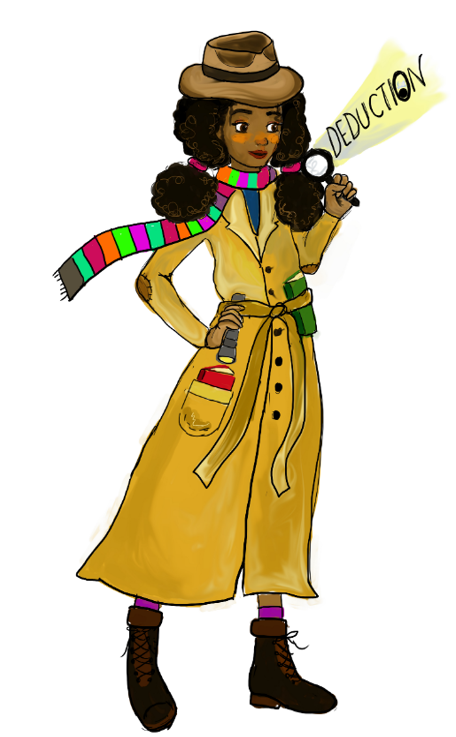
Deduction
Foundation Stage - I understand stories and can predict the ending.
KS1- I can find and solve clues.
Lower KS2- I like to be a detective. I like to find and solves the clues and work out what is happening now and is going to happen in the future.
Upper KS2- The clues are there in the text you just might have to look a bit closer for them. How can you piece the clues together to figure out what’s happened and guess what will happen next?
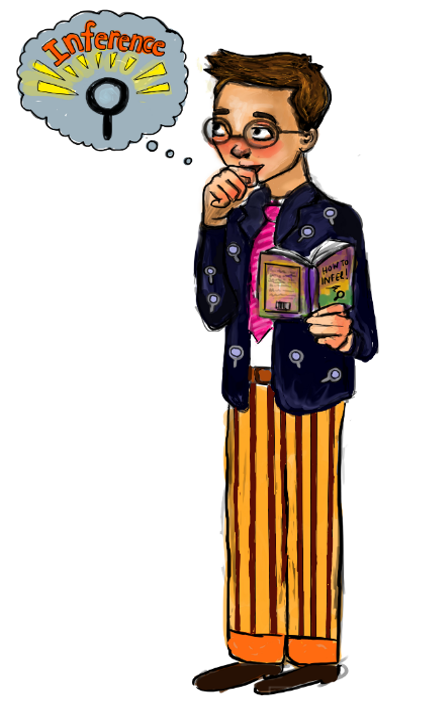
Inference
Foundation Stage - I can say how characters are feeling.
KS1- I can read between the lines.
Lower KS2- I like to “read between the lines” and discover the top secret information that the author is showing but not telling us!
Upper KS2- What is the author “showing you” but not “telling you”? These answers are harder to find as you will need to look closely for clues about what the author is implying but not actually saying.
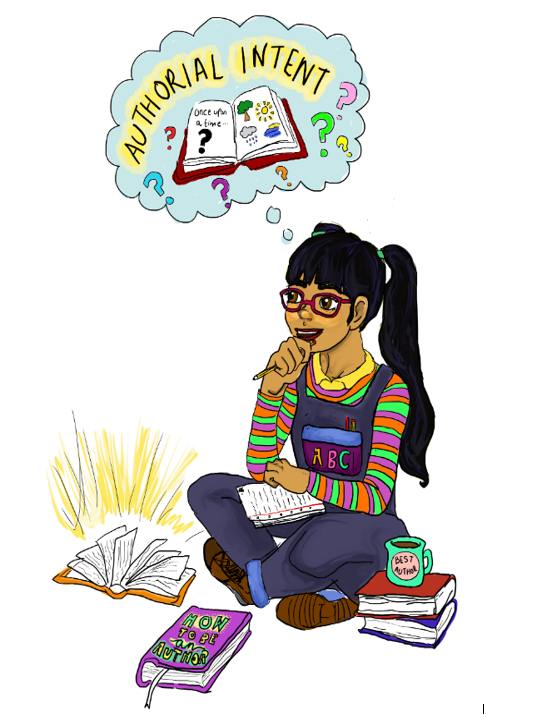
Authorial Intent
Foundation Stage- I can find words in books.
KS1- We can read as writers.
Lower KS2- We like to read as writers. We like to find words, know why the writer has chosen them and what they mean.
Upper KS2- You need to read as a writer. Why has the author chosen to use the words and phrases they’ve used? What does that word mean and what effect does it have on the reader?
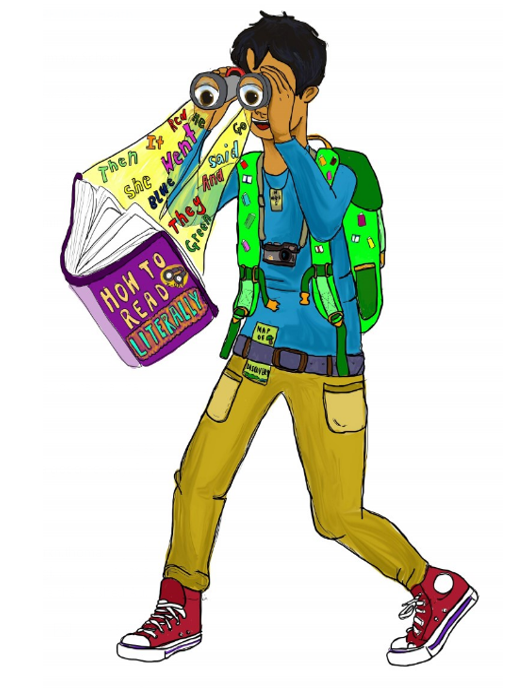
Literal
Foundation Stage- I like to find answers in books.
KS1- The answers are there in front of you!
Lower KS2- We like to solve really easy puzzles, the answers are always right there in front of us!
Upper KS2- The answer isn’t hidden or hard to find it is right there in the text.
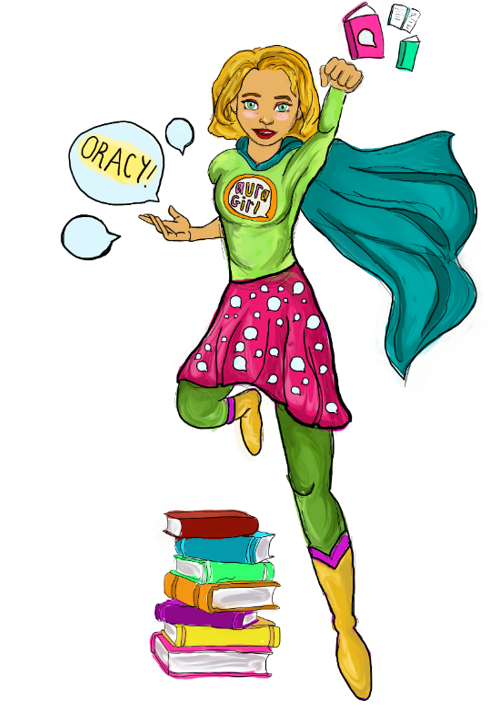
Oracy (book talk)
Foundation Stage- I like to talk about books.
KS1- I like to talk about books and can give my opinions.
Lower KS2- I like to talk about books and give reasons for my opinions. Sometimes I like to discuss books with my friends.
Upper KS2- Can you discuss books and debate your opinion fairly with others?
Leaders
Miss Wood & Mr Fisk
The progress pupils make from the end of Year 2 to the end of Year 6 in reading and writing is a strength of the school and is above the national average.
Ofsted 2018
